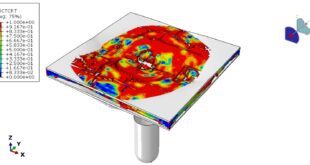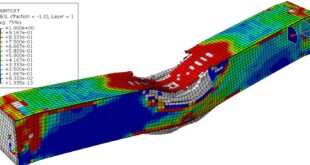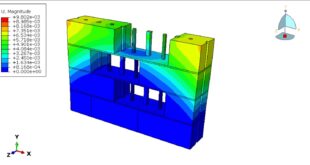I this tutorial two model of masonry wall has been investigated. The first model without out FRP and the second model with FRP. In the first model
Masonry is the oldest structural material still in use for a vast variety of construction. It has been continually employed for differ-ent construction purposes. Old masonry structures were designed and constructed without any complicated mathematics, but through the expert masons with trial and error methods. In the last few decades engineers’ attention are being devoted to the new methods of analysis of masonry structures.In overall to capture the response of masonry in a more realistically fashion a numerical model requires interface elements. One possible option is to use interface elements for the joints and suit-able model for masonry units, grout and mortars.
In this simulation three dimensional space to model bricks has been used. Material for concrete and bricks are considered as elastic material.To model behavior of mortar there is two way. The first way define the mortar as three D part and assign material as traction separation law because during analysis mortar experienced damage and it should be consider . The second way using cohesive behavior couple with damage and evolution and assign it to the interaction surfaces between bricks.Ii this simulation the second way has been used and BK low consider for it as damage formulation with normal, shear and tangential stiffness.During the analysis by applying normal pressure and transverse concentrated force, Rocking failure mode is appeared and you can see some figures about the results of this simulation at below
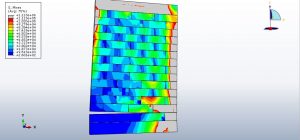
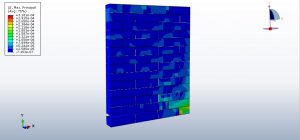
In the second analysis FRP was used as a below figure
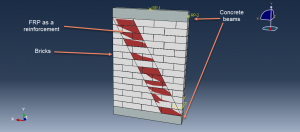
All boundary conditions and load are same with previous model but the results are not same. By using FRP as reinforcement the Rocking failure mode removed and the wall experienced a smaller deformation than the previous model. The FRP with sixteen layers has a great effect on the wall strength and you can see some figures of this simulation at below
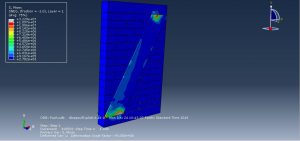
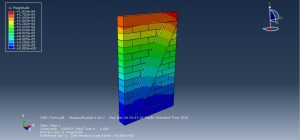
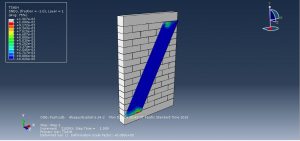
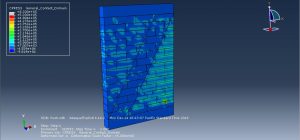
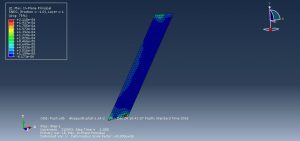
You can provide CAE ,INP,and English video files of this simulation here. The cost of these files is Twenty-Four Euros. you can click on the bellow bottom to beginning process
You can purchase the tutorial through a PayPal account, a Visa, or a Master card, just before payment,send me an email to this address: karampourp@gmail.com
 Abaqus tutorials Abaqus tutorials
Abaqus tutorials Abaqus tutorials
